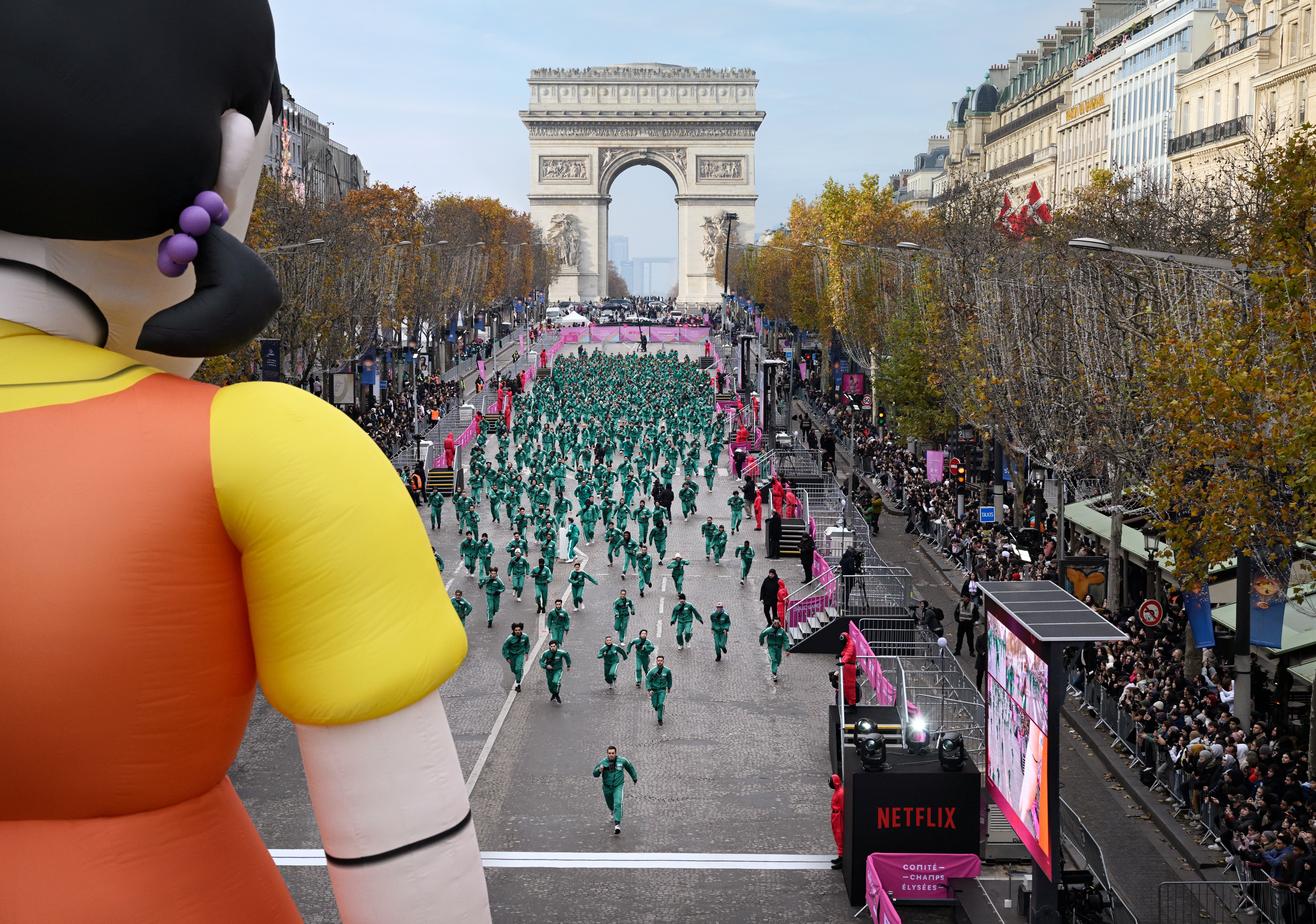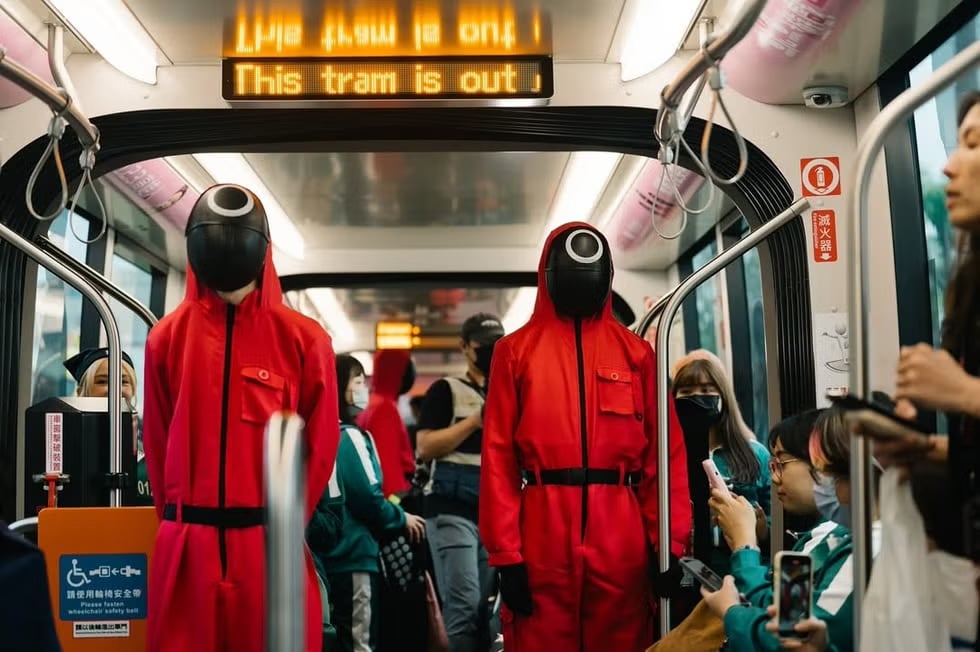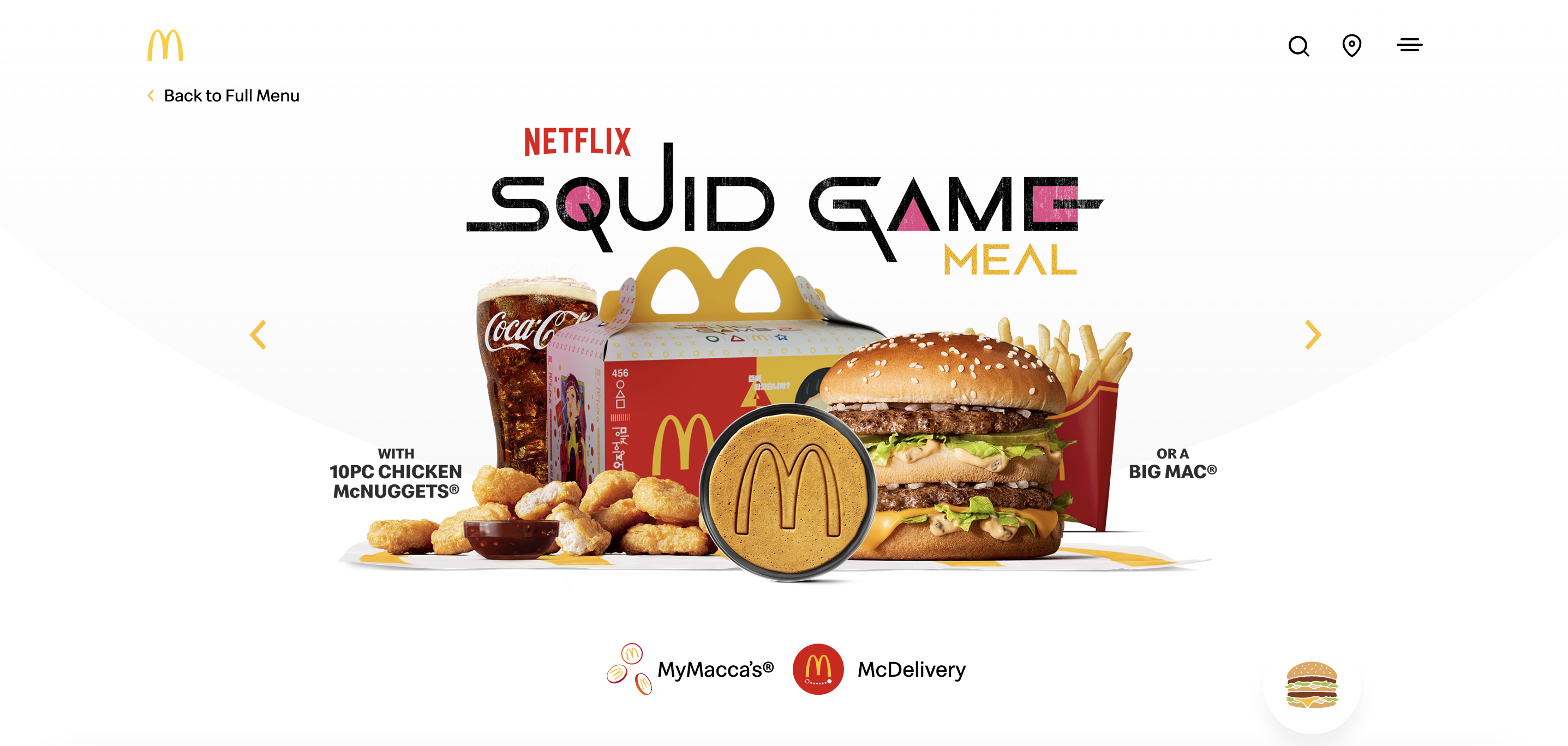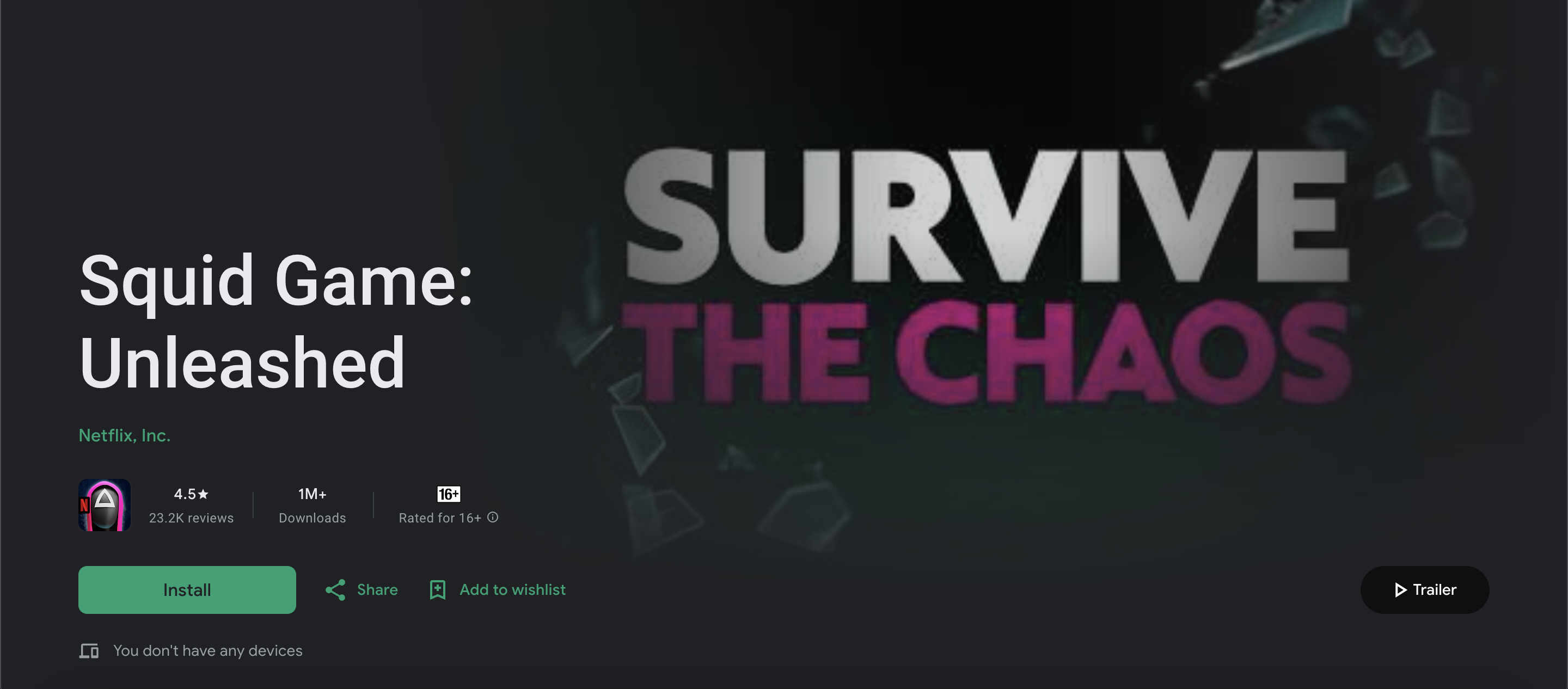Have you watched Season 2 of Squid Game yet?
According to Netflix’s official announcement, Squid Game Season 2 has broken records as Netflix's most-watched debut ever, amassing 68 million views despite a massive footage leak. Additionally, it set another milestone, becoming the fastest show to enter the streaming service's Most Popular list for non-English-language shows, topping the charts in 92 different countries.
Before the show aired, some speculated that Season 2 would pose the ultimate challenge for Netflix’s marketing team. Many were watching, perhaps hoping to witness a major stumble after the phenomenal success of Season 1. However, Netflix’s marketing strategy defied expectations, turning potential disaster into another resounding success.
In this edition of Dipp Digest, we’ll dive into the marketing tactics behind Squid Game Season 2 and explore what lessons brands can take from its success.
Netflix’s Marketing Tactics: 5 Key Strategies
Netflix employed a range of innovative marketing strategies for Squid Game Season 2, captivating audiences worldwide. The campaign centered around five core methods: immersive experiences, brand collaborations, interactive digital campaigns, strategic release timing, and comprehensive media coverage.
Immersive Experiences
Immersive experiences have become a cornerstone of successful marketing campaigns. Take Jellycat’s Café as an iconic example of how a brand can create memorable, interactive environments for its audience.
Netflix took this concept to the next level with Squid Game Season 2. In Paris, for instance, they organized a real-life "Red Light, Green Light" game featuring a replica of the show’s iconic doll, drawing in hundreds of attendees. Meanwhile, in Taiwan, “guards” dressed in the show’s signature costumes appeared in MRT stations, giving passengers an eerie, firsthand taste of the Squid Game atmosphere.


Brand Collaborations
Netflix partnered with several major global brands to broaden the show's reach across various interests and industries:
-
Puma: Launched a collection featuring distinctive tracksuits and trainers inspired by the series.
-
Crocs: Collaborated on a themed footwear line for fans of the show.
-
McDonald's Australia: Introduced the "Squid Game Meal," which included themed items like Korean BBQ sauce and Dalgona Candy. The meal was promoted with a commercial featuring the original voice of the Game Instructor.
-
Duolingo: Encouraged viewers to learn the Korean language through promotional activities tied to the show’s themes.
-
Call of Duty: Created in-game content inspired by Squid Game, integrating elements from the series into the popular video game.
-
Samsung: Designed exclusive, limited-edition devices featuring Squid Game branding.

Interactive Digital Campaigns
Netflix collaborated with Google to launch an interactive game, "Squid Game: Unleashed," allowing users to experience elements of the series online. Released on December 19, 2024—just a week before the show’s premiere—the game has since been downloaded over one million times on Google Play, enhancing digital engagement.
Download Squid Game: Unleashed on Google Play

Strategic Release Timing
The second season premiered on December 26, 2024, strategically timed during the holiday season to maximize viewership. This well-planned release period contributed to the season’s record-breaking debut, with 68 million views in the first four days—surpassing all previous Netflix records.
Comprehensive Media Coverage
Netflix’s marketing efforts garnered significant media attention, with countless outlets discussing the campaign’s scale and impact. This widespread coverage amplified the show’s presence across diverse platforms, further cementing its global appeal.
Then, here are some takeaways for our retailers even when you don’t have a luxury marketing budget:
-
Gamification: Create simple in-store or online games where customers can win discounts or freebies. For example, for a upcoming CNY season, you can have a lucky draw or spend with a set amount of money then you can win a chance to speak with a fortune teller.
-
DIY Experiences: Use your store space or social media to host small challenges or events, like crafting sessions or trivia contests, tied to your product.
-
Co-branded Products: Design limited-edition items with complementary brands, e.g., a snack brand teaming up with a drink brand for a bundled offer.
-
Shared Campaigns: Pool resources to co-host events or digital campaigns. This way, both brands share costs and benefit from each other’s audience.
-
Social Media Challenges: Launch hashtag challenges or AR filters that encourage user participation on platforms like Instagram or TikTok.
-
Seasonal Promotions: Time campaigns around holidays, festivals, or major cultural events when customers are more likely to shop.
-
Product Drops: Build anticipation by announcing limited-time sales or exclusive product releases, leveraging urgency and FOMO.
-
Customer Advocacy: Encourage customers to share reviews or user-generated content. Reward top contributors with shoutouts or discounts.
Bonus Tip: Storytelling Through Themes
Similar to how "Squid Game" maintains thematic consistency, brands should create a narrative that connects campaigns and builds emotional resonance. For example, align visuals and messaging across all platforms to make your campaign feel cohesive.
By focusing on creativity, community engagement, and leveraging accessible tools, even brands with limited resources can replicate the impact of larger campaigns on a smaller, more targeted scale.

Reference:
‘Squid Game’ Season 2 Smashes Top 10 Records as Millions Worldwide Take Part in Fan Activations and Experiences
An Update On The Surprisingly Close ‘Squid Game’ Season 3 Release Date
'Squid Game' season 2 smashed Netflix's record for the biggest debut
Squid Game Season 2: Brands Riding the Viral Trend
An Unprecedented Worldwide Marketing Campaign by SQUID GAME 2
Inside Netflix's Elaborate Marketing Push for 'Squid Game' Season 2